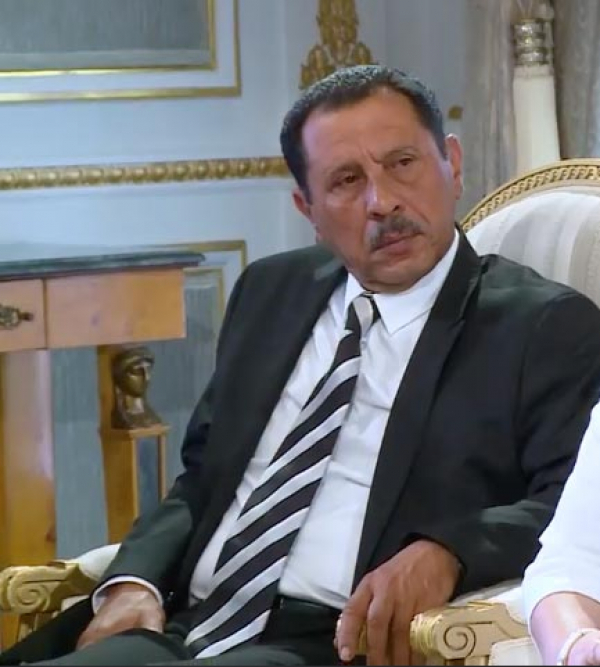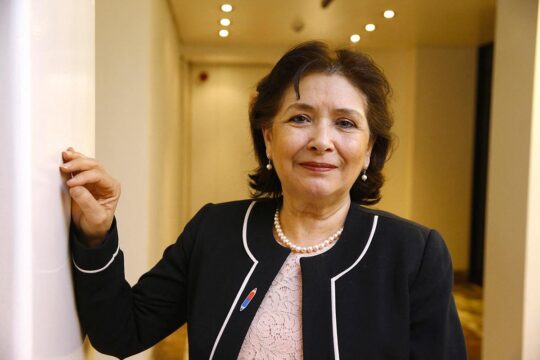JUSTICEINFO.NET: Did you expect such a deluge of attacks and controversy when the Commission on individual liberties and equality published its report on June 12?
SLIM LAGHMANI: We expected that it would provoke reactions because our report tackles taboo subjects on which Tunisians are still divided, such as the death penalty, homosexuality, equal inheritance rights for men and women. But we are surprised by the divisive nature of the debate. It seems that people are either for or against the Commission’s proposals, with hardly any nuanced positions. That means the issue has immediately been seen as ideological, rather than judicial and pertaining to human rights. Once the issue is placed on an ideological level, there can easily be abusive overreaction. People are not even discussing the content, but rather personifying our work, calling it the “report of Bochra Belhaj Hamida [president of Colibe]”, who has become the target of attacks, sometimes quite vile.
The arguments of your critics include the question of timing. Is the time really right for individual freedoms and total equality of men and women when Tunisia is facing big economic, social and security challenges?
We can always wonder how opportune a big initiative like this is in the given context. I will respond with two arguments. First, clearly it was not the moment to raise such issues before the Revolution, notably individual freedoms, since all the strings of power were held by one person, former president Ben Ali who I must say did a lot for women’s rights. I also recognize that he brought a big and positive change with regard to rights of children from unmarried parents, through the law of 1998, which is unique in the Arab world and deserves to be strengthened. On the other hand, in Ben Ali’s time, reforms were never a subject of debate. Nor for that matter in the time of Bourguiba, who alone decided how the law should be changed and to what extent. So it was not the “right moment” when there was no political debate. But now we have freedom of expression, debate is open and possible on all issues. In addition, there is a relative balance of political forces, which is favourable to freedom. From this point of view, it is indeed the “right time” for proposals such as those of Colibe.
It is indeed the right time for the proposals of Colibe.
In response to the other aspect of the question, the timing in relation to priorities, the argument would be valid if the one depended on the other or, to be more precise, if the development of the laws was likely to hinder economic growth. But that is not the case with regard to individual freedoms. I don’t see how progress on individual freedoms could hinder development. I don’t see how giving women equal inheritance rights would damage the improvement of economic conditions in our country, especially when it is a question of opening an economic door for women. According to statistics that I find quite shocking, women currently own only 3% of land. I don’t see how allowing Tunisian women to own real estate, especially rural women, could be an obstacle to development!
You say in your reasoning that individual freedoms can ensure the success of the democratic transition. Don’t the individual freedoms that Tunisia has enjoyed since the 2011 Revolution, especially since the publication of the 2014 Constitution, guarantee the continuation of this process?
The liberties that we call public, or more precisely our collective freedoms – like freedom of association or to create political parties – are different from individual freedoms, which the individual can exercise independently, or which exist to protect the individual as such. We are relatively advanced in terms of public freedoms and very much behind with regard to individual freedoms. That doesn’t mean that the former is irrelevant to the transition, quite the contrary. But you can’t imagine a democracy as just a set of mechanisms that are basically limited to a vote. It must also include certain values, and democracy as a system of values cannot be dissociated from the individual. Isn’t the first act of democracy based on casting a vote? That is something which is done individually, secretly and freely, which implies an autonomous choice. It is a fact that we are way behind in terms of the law on individual rights, including the right to privacy, protection of private correspondence and private homes. Even more serious is the fact that the collective conscience itself has trouble admitting these rights.
We do not have a culture of respecting private space
We do not have a culture of respecting private space. On the contrary, that “secret space” is considered a place of suspicion and sin. And we give ourselves the right to put people’s private lives under surveillance. We even think we have a right to oversee and interfere in the affairs of others in the name of community values, whether they are dictated by customs, majority opinion or religion. Whereas a verse of the Koran which to me seems fundamental says: “Do not spy on your neighbours.”
Because of these compromises and ambiguities, jurist Iadh Ben Achour in his book “A Revolution in the Islamic world” calls the Constitution a hotchpotch. Don’t ambiguities in the Constitution, whose Article 1 says that “Islam is the religion of State” whilst Article 2 says “Tunisia is a civil State”, promote divisive interpretations like those sparked by the Colibe report?
I would probably not use the same expression as Iadh Ben Achour. The question I ask is the following: Would we have got the Constitution adopted without that ambivalence, which is not only between Articles 1 and 2 but also the preface to the Basic Law and other provisions, notably referring to identity? How to explain these ambiguities? In fact, each time the authors of the Constitution were faced with immovable opposition on issues of society, identity or political governance, they chose not to surmount the contradictions but to shelve them. That allowed the text to pass, but it also allows diametrically opposed interpretations. We see all too well with the publication of our report that the Constitution has not resolved any of our cultural contradictions, but rather shelved them. The Colibe report has taken them off the shelf.
You have dedicated a lot of the report to respect of private life as an individual freedom. So why do you continue to sanction homosexuality and consider it as a crime?
In fact we presented two proposals. The first is to decriminalize homosexuality, so that it no longer be considered a legal offence. Some ill-willed people thought we were trying to legalize homosexuality – which is different from decriminalization –, or even encourage gay marriage. That was never our intent. The second proposal, which indeed sparked much criticism, consisted in keeping the offence but introducing two limitations which amount to a de facto decriminalization of homosexuality. We proposed that prison sentences should be transformed into a 500 dinar fine and that anal tests be banned. This proposal was put forward in anticipation that the first one, which is favoured by our commission, would be rejected.
Why is the Ennahda Movement so mobilized against equal inheritance rights and not on the death penalty or homosexuality?
Quite simply because the inheritance issue can rally more people around the party. It’s not just a religious issue, but also an economic and social issue affecting power within the family, because we know that the person who holds the wealth holds the power.
So to what extent is your project revolutionary, as many Tunisian and international human rights organizations say?
If our proposals can safeguard individual freedoms and equality, eliminate all forms of discrimination against women and children, that would seem to me a big step forward in modernizing Tunisian law. That does not mean Westernization and loss of identity as some would have it, but modernity founded on the most enlightened part of our heritage, from the rational thinking of our Muslim philosophers to the reformists’ innovations of the nineteenth and twentieth centuries. The Colibe report is in line with them.
If our proposals can safeguard individual freedoms, equality and eliminate all forms of discrimination against women and children that would seem to me a big step forward in modernizing Tunisian law.
We must await the time when our project is accepted, for the law seems to be in advance of reality. With a strong and vigilant civil society aware of rights and freedoms, we can move forward. Changing the law can speed up time.






